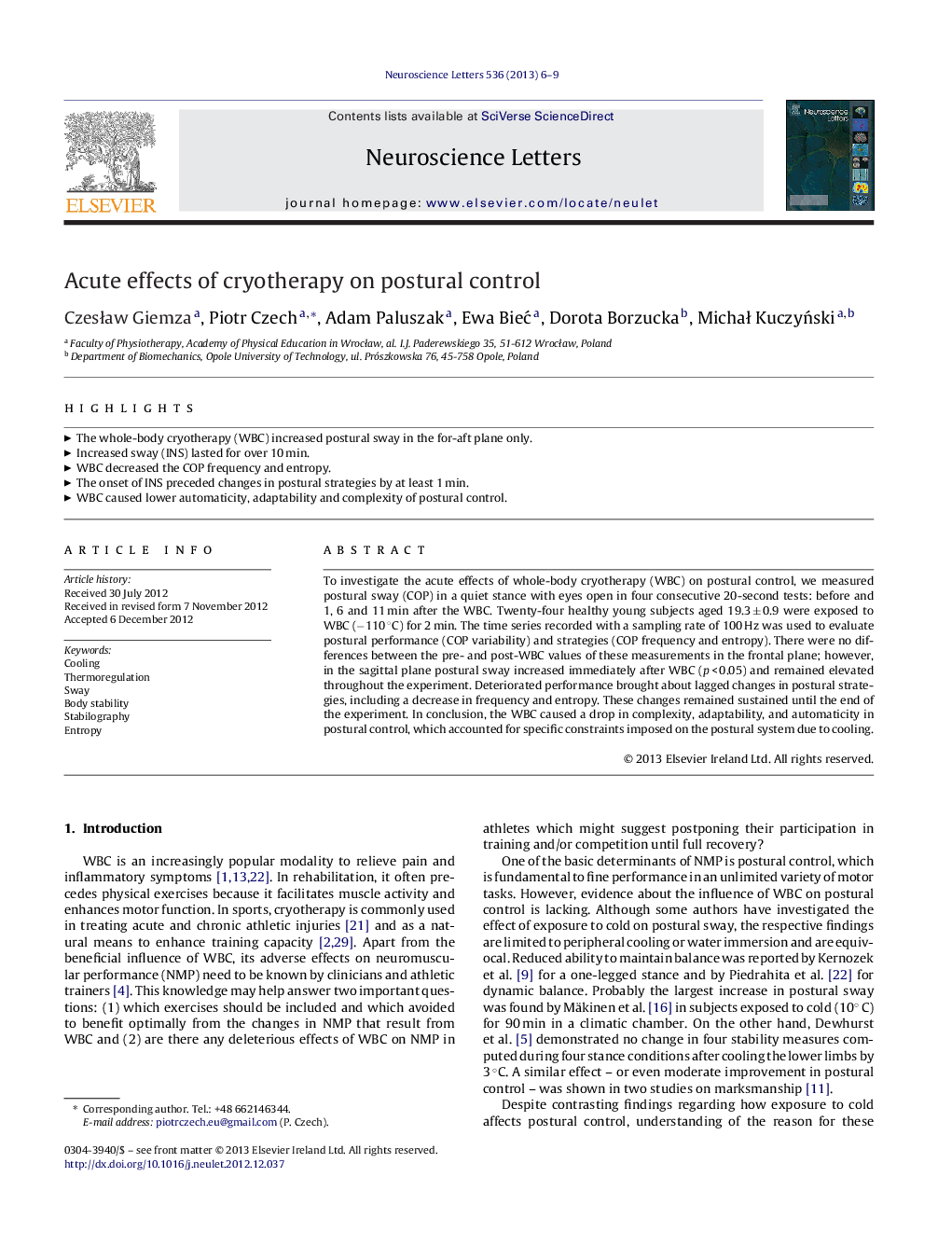| Article ID | Journal | Published Year | Pages | File Type |
|---|---|---|---|---|
| 4344059 | Neuroscience Letters | 2013 | 4 Pages |
To investigate the acute effects of whole-body cryotherapy (WBC) on postural control, we measured postural sway (COP) in a quiet stance with eyes open in four consecutive 20-second tests: before and 1, 6 and 11 min after the WBC. Twenty-four healthy young subjects aged 19.3 ± 0.9 were exposed to WBC (−110 °C) for 2 min. The time series recorded with a sampling rate of 100 Hz was used to evaluate postural performance (COP variability) and strategies (COP frequency and entropy). There were no differences between the pre- and post-WBC values of these measurements in the frontal plane; however, in the sagittal plane postural sway increased immediately after WBC (p < 0.05) and remained elevated throughout the experiment. Deteriorated performance brought about lagged changes in postural strategies, including a decrease in frequency and entropy. These changes remained sustained until the end of the experiment. In conclusion, the WBC caused a drop in complexity, adaptability, and automaticity in postural control, which accounted for specific constraints imposed on the postural system due to cooling.
► The whole-body cryotherapy (WBC) increased postural sway in the for-aft plane only. ► Increased sway (INS) lasted for over 10 min. ► WBC decreased the COP frequency and entropy. ► The onset of INS preceded changes in postural strategies by at least 1 min. ► WBC caused lower automaticity, adaptability and complexity of postural control.
